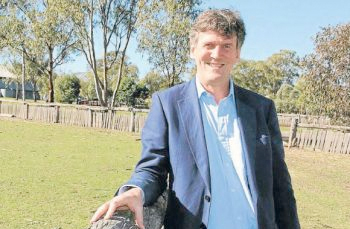
Written by Melody Labinsky
Producing more with less and feeding the world’s growing population are key concerns for Dr Mark Holderness, executive secretary of the Global Forum on Agricultural Research.
Dr Holderness, who is based in Rome, was one of the delegates at the Food 4 Growth and G20 meeting of agricultural chief scientists in Brisbane last week. The events brought together science and business leaders from G20 participant nations to examine global links between agricultural productivity, food security, sustainability and economic growth.
“We’re dealing with agricultural issues all around the world and looking at the future of agriculture, the role that new knowledge plays in that and in generating change for farmers,” Dr Holderness said. “We have to be making the right choices now in order to deal with the issues of the future and that’s what this G20 meeting is all about.”
Dr Holderness said there were some huge challenges ahead and that agriculture was failing to match production with consumption. For example, he said, there were one billion under-nourished people in the world and two billion over-nourished. “Frankly, if we were all consuming at the rate of the US we would need four planets – we don’t have four planets – we’ve got to make this one work. A lot of what science and technology has to offer goes beyond just straight production into more effective production that can deal with climate change that’s coming. “One that can deal with different forms of nutrition and ensuring that we’re producing in a way that is truly sustainable and resilient to all these shocks and changes that are coming.”
The value of good diets and quality food was being lost, he said. This led to huge health costs, he said, which were often not taken into account by governments. “They [governments] tend unfortunately to treat different ministries separately and to treat different ministries separately and not make the cross links between the differ- ent issues.”
Last Wednesday the delegates went on a tour of agricultural businesses in southern Queensland. Dr Holderness said the trip had been really fascinating and it was interesting to see the changes towards no-till farming and the implications that had for water conservation. CSIRO research scientist Dr Jeremy Whish, who organised the trip, said it was a great chance to showcase some of the agriculture and agricultural research in Toowoomba and the Darling Downs.
